Top Reasons Why You Can Not Ignore Cloud Database Technology.
Introduction
In today’s data-centric world, secure and efficient data management is vital for individuals and enterprises alike. The introduction of cloud database technologies, such as Tally solutions, has completely changed how data is managed, accessed, and stored. Ignoring this important development involves placing competitiveness and security at risk. This blog explores cloud database technology, including its types, functions, advantages, and common questions.
What is a Cloud Database?
One kind of database service that is created, implemented, and accessed via a cloud platform is called a cloud database. It offers scalability, flexibility, and cost-effectiveness by letting users store and manage data without having to deal with the supporting infrastructure. This database technology is scalable to a range of application kinds and data requirements, supporting many models such as standard table-based, document-oriented, or key-value stores.

How do Cloud Databases work?
1. Data Storage
Download Free 90+ Tally Shortcut Keys
Cloud-hosted remote servers are used to store data. This configuration makes data available from any place as long as there is internet connectivity, enabling cross-border data sharing and remote work.
2. Resource Scaling
Cloud databases dynamically allocate resources based on demand. This means that during peak times, more resources are allocated to maintain performance, and during low demand, resources are scaled back to reduce costs.
3. Data Replication
To ensure high availability and disaster recovery, data is replicated across multiple locations in real time. This ensures that even if one server fails, the data can be quickly recovered from another location without significant downtime.
4. Security Measures
Cloud databases implement robust security measures, including encryption, access controls, and monitoring systems, to protect data from unauthorized access and cyber threats.
5. Maintenance and Updates
The cloud provider is responsible for maintaining the infrastructure, including hardware and software updates. This relieves users from the burden of manual updates and maintenance, ensuring that the system is always running on the latest technology.
What are the Benefits of Cloud Database?
1. Cost Efficiency
Cloud databases reduce the need for physical hardware and IT staffing, lowering operational costs. Users pay only for the resources they use, making it an economical choice for businesses of all sizes.
2. Scalability
The ability to scale resources up or down based on demand ensures that applications perform optimally without incurring unnecessary costs. This flexibility supports business growth and fluctuating workloads.
3. Accessibility
Being able to access data from anywhere in the world enhances collaboration among teams and supports remote working environments. This global accessibility is a key advantage of cloud databases.
4. Data Security
With advanced encryption and security protocols, cloud databases offer superior data protection. Providers invest heavily in security measures to guard against breaches and data loss.
5. Backup and Recovery
Automatic backups and disaster recovery capabilities ensure data integrity and availability. Businesses can recover quickly from data loss incidents, minimizing downtime and data corruption risks.
Different Types of Cloud Services
1. Infrastructure as a Service (IaaS):
Offers fundamental computing resources such as virtual machines, storage, and networks on a pay-as-you-go basis. It’s ideal for businesses looking for flexibility and control over their infrastructure.
2. Platform as a Service (PaaS):
PAAS Offers a platform so users may create, execute, and maintain applications without having to worry about the supporting infrastructure.
3. Software as a Service (SaaS):
Delivers software applications over the internet, on a subscription basis. It eliminates the need for installing and running applications on individual computers, simplifying software management.

4. Database as a Service (DBaaS):
Focuses on providing a database environment in the tally on cloud. Users can manage and scale their databases without worrying about hardware, software, or patches.
5. Function as a Service (FaaS):
Enables developers to deploy individual functions without managing the server infrastructure. It’s a key component of serverless architectures, allowing for highly scalable, event-driven applications.
Conclusion
Avail the advantage of Tallystack’s greatest deals on Tally on Cloud today, and check out our cloud live demo to learn how you can utilize your Tally account at any time, from any location. Enjoy the extra advantages of having all the resources you need plus our renowned cloud benefits skilled administration and maintenance.
Cloud database technology is not just a trend; it’s a fundamental shift in how data is managed in the digital age. Its advantages in terms of cost, scalability, accessibility, security, and efficiency make it an indispensable tool for businesses and individuals.
Frequently Asked Questions
Q.1 What is the main difference between cloud databases and traditional databases?
Cloud databases are hosted on cloud infrastructure, offering scalability, flexibility, and cost-efficiency, whereas traditional databases are hosted on-premises and require significant investment in hardware and maintenance.
Q.2 Can cloud databases handle large volumes of data?
Yes, cloud databases are designed to handle large volumes of data efficiently. They can dynamically scale resources to meet the demands of big data applications.
Q.3 Are cloud databases secure?
Cloud databases employ stringent security measures including encryption, access controls, and constant monitoring to protect against unauthorized access and cyber threats, making them highly secure.
Q.4 How does scalability in cloud databases work?
Scalability in cloud databases is achieved through the dynamic allocation of resources. Based on the application’s demand, the cloud service can automatically scale resources up to handle increased loads or scale down to reduce costs when demand is lower.
Q.5 What should I consider when choosing a cloud database provider?
Consider factors such as the provider’s reputation, security measures, scalability options, cost structure, support and service levels, compliance with industry standards, and the specific features and limitations of their database offerings.
